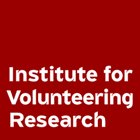Posted on April 14th, 2011 by Tim Hughes in Project news
Tagged as: ecosystem of participation exercise, participatory workshops
Post a comment
Over the course of March we held a series of learning and action workshops in our three field work areas in Enfield, Leeds and Suffolk. These workshops were designed to help us to explore our emerging findings and their implications with representatives from the public, voluntary and community sectors. The workshops were divided into 3 main sections, exploring the ‘what?’ (our research findings), the ‘so what?’ (the opportunities and challenges they present) and the ‘now what?’ (actions to help take advantage of the opportunities and overcome the challenges). In my last post I wrote about the first two steps in this process at the first workshop in Leeds, in this post I’m going to focus on the ‘now what?’ stage.
In order to help participants think about actions that they could take forward - whether individually, through their organisations, or collectively - we developed an exercise called the ecosystem of participation. Each group (working on a particular opportunity or challenge) were given a paper tree and a short amount of time to explore the deep causes of the issue (e.g. the ‘roots’), identify the resources or assets already available (e.g. the ‘branches’ and ‘birds’) and explore the vision (e.g. the ‘sky’) that they were ultimately aiming for. Each group then populated their tree with actions, which took the form of green leaves. The picture to the right shows a group working on their tree, and the diagram below shows a representation of a group’s completed tree.

Representation of a group's finished tree

Tree mural with priority - gold leaf - actions
Towards the end of the exercise, the groups were asked to identify their three priority actions (which became their golden leaves), present these to everyone and group them onto a large tree mural.
A number of participants commented on the power of working with others interested in similar issues to them - but who they might never have met otherwise - to think through these challenges. Groups at all of the workshops developed some great ideas for action, and we hope that these will be put into practice.
If you would like to find out more about the learning and action workshops and their outcomes, the presentations and workshop reports from Enfield, Leeds and Suffolk can be found in the resources section of the website.


 ShareThis
ShareThis




